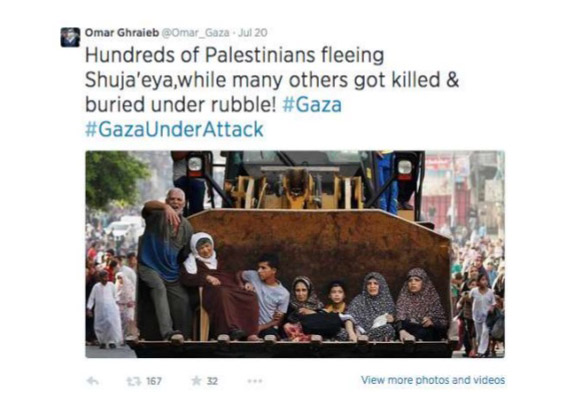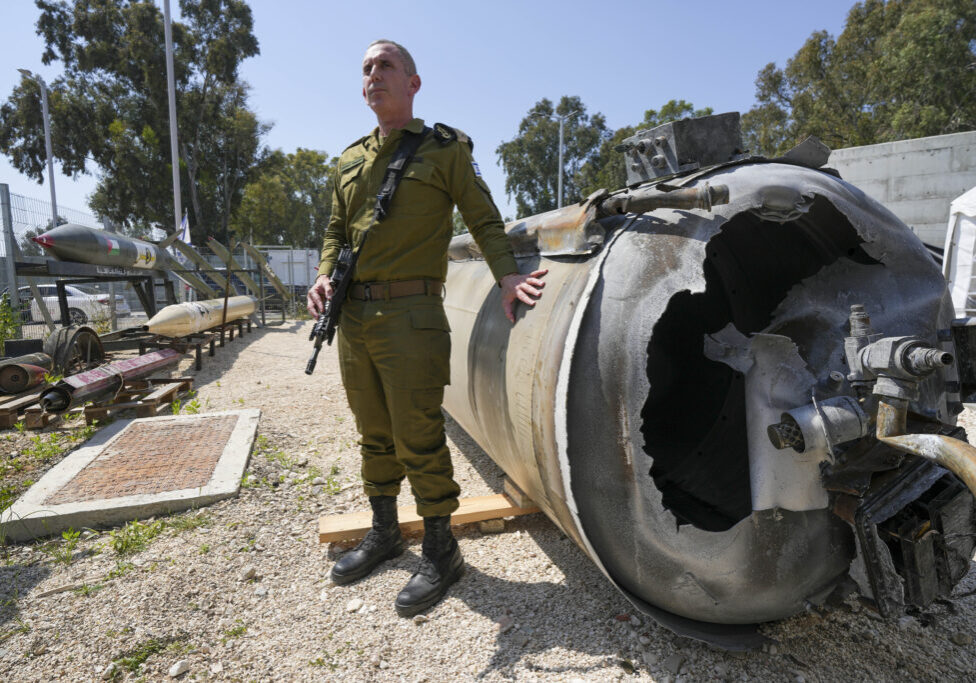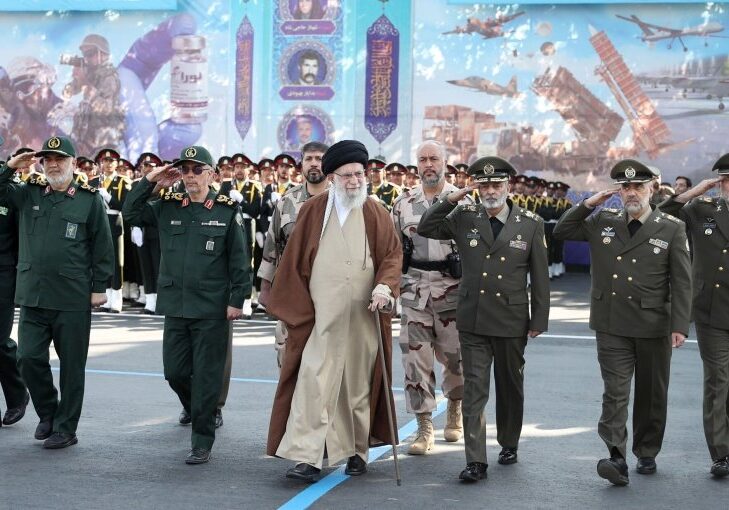Australia/Israel Review
Biblio File: War by Other Memes
Feb 12, 2018 | Jamie Kirchick

War in 140 Characters: How Social Media Is Reshaping Conflict in the Twenty-First Century
by David Patrikarakos, Basic Books, 2017, 320 pp., A$30.35
By any traditional standard, Israel won its 50-day war against Hamas in 2014. It incurred far fewer casualties than its Palestinian adversary. It rooted out much of the Gaza Strip’s terrorist infrastructure, including tunnels the militant group had burrowed to transport fighters into Israel. And it put an end to incessant rocket attacks on Israeli towns. So punishing was Israel’s military campaign, dubbed “Operation Protective Edge”, that Gazans were made to understand their continued support of Hamas would only bring more death and destruction.
Alas, according to David Patrikarakos, author of the fascinating War in 140 Characters, the traditional metrics of determining winners and losers no longer apply to armed conflict. War has entered a postmodern phase in which victories and losses on the “discursive level” matter more than casualty figures or captured territory.
For instance, usually the side that suffers more dead civilians would not be declared a conflict’s winner. Paradoxically, however, higher numbers of dead Palestinians help Hamas, which knew it would never be able to win a war of attrition against the conventionally stronger Israel but simultaneously knew that a higher Palestinian death toll would be “intolerable to a global audience” and thus isolate Israel on the international stage.
Of course, the Israeli military is one of the world’s most humane, putting the lives of its own soldiers at great risk in order to minimise the civilian casualties of its adversary. And of course, Hamas puts rockets on hospital rooftops as part of a cynically deliberate strategy to invite said casualties.
But such elementary moral distinctions count for little against photographs of dead babies or plaintive tweets from a 16-year-old Palestinian girl with a winsome Twitter account, one of several “Homo digitalis” Patrikarakos profiles. Israel, he writes, seeks to “fight sentiment with logic, which is an almost impossible task” in a world of ever-shorter attention spans and where the news cycle is largely steered by what’s trending on Twitter. And so, despite Israel’s having international law and basic morality on its side, the court of global opinion weighed heavily against the Jewish state.
The major reason for this fundamental shift in the nature of war, Patrikarakos argues, is technology, namely, social media. War has been an integral part of the human experience ever since man developed opposable thumbs (if not before) and only the most naïve would aver that we’ll ever rid ourselves of it. What fascinates Patrikarakos, a widely travelled foreign correspondent, is how social media is changing the nature of armed conflict.
His theses are bold. “Power has shifted from hierarchies or institutions to individual citizens and networks of citizens,” he writes. Furthermore, “the narrative dimensions of war are arguably becoming more important than its physical dimensions,” as could be seen with international reaction to Operation Protective Edge.
Finally, war itself is shifting from the “conventional” interstate conflicts of yore (America vs. Germany, Britain vs. Argentina, Pakistan vs. India, America vs. Iraq) to engagements in which the combatants often include non-state actors (like Hamas and the aspirationally named Islamic State) “or exist somewhere in the nebulous region between the boundaries of war and peace,” such as the conflict in Ukraine, wherein the aggressor (Russia) denies even being a participant.
Driving all these phenomena, argues Patrikarakos, are the radically democratising effects of social media, whereby online content has “seeped into the offline world and [is] reinventing reality for those it target[s].” He illustrates his argument by showcasing the good, the bad, and the ugly of social media warriors; from a young Ukrainian professional using Facebook to raise funds for poorly-equipped soldiers on the front line; to the Russian troll paid to write falsehoods on the Internet; to the French-Senegalese woman lured by Internet propaganda to abandon her bourgeois lifestyle for the pious compulsions of ISIS.
A worrying conclusion to be drawn from this book, which Patrikarakos does not explicitly make, is that democratic states are woefully behind their authoritarian and terrorist adversaries in harnessing the power of social media.
Anna Sandalova, a Ukrainian ex-PR executive who took it upon herself to outfit entire units of soldiers by raising money on Facebook, did so because a corrupt Ukrainian state had sucked its military dry and left the country dangerously unprepared. Meanwhile, Ukraine’s aggressor Russia invested early and heavily in the manipulation of social media, employing armies of bots and trolls to pollute the Internet and rewrite algorithms to its liking. (The full effect of these efforts, which did not stop with the end of the 2016 American presidential campaign, is currently under investigation by numerous US government bodies.)
Patrikarakos wonders at the pornographic effects such exploitation of social media by the likes of Russia, Hamas, and Islamic State has, leaving followers demanding more and more extreme actions on the ground.
While illiberal states and organisations have proven adept at using social media, it’s primarily individuals who are best at fighting the good fight in the West. Patrikarakos profiles Eliot Higgins, an English computer-game nerd and autodidact who has emerged as one of the Putin regime’s primary antagonists by methodically and convincingly proving its responsibility for the firing of a missile that shot down a civilian jetliner over Ukraine and for war crimes in Syria.
At the State Department, it was a career foreign service officer, Alberto Fernandez, who devised the most innovative and effective ideas for combating ISIS propaganda, like a parody tourism video, “Welcome to ISIS Land,” that featured gruesome footage of Islamic State atrocities. Eventually, however, as Patrikarakos shows, Fernandez became frustrated with bureaucratic inertia and a president who referred to ISIS as a “JV team”; he retired in frustration.
Though the content of his missives is often appalling, Donald Trump was clearly onto something when he discovered the medium of Twitter. Partly by using this simple tool, a reality-TV star became the most powerful man in the world. Now, statesmen, terrorists, newspapers, foreign ministries, and ordinary citizens around the globe hang on his every tweet. This is our new reality, and War in 140 Characters is an excellent guide to it.
James Kirchick is a visiting fellow in the Center on the United States and Europe and Project on International Order and Strategy at the Brookings Institution. A widely published journalist, he is author of The End of Europe: Dictators, Demagogues and the Coming Dark Age (Yale, 2017). Reprinted from the Weekly Standard. © Weekly Standard (www.weeklystandard.com), reprinted by permission, all rights reserved.
Tags: Israel






